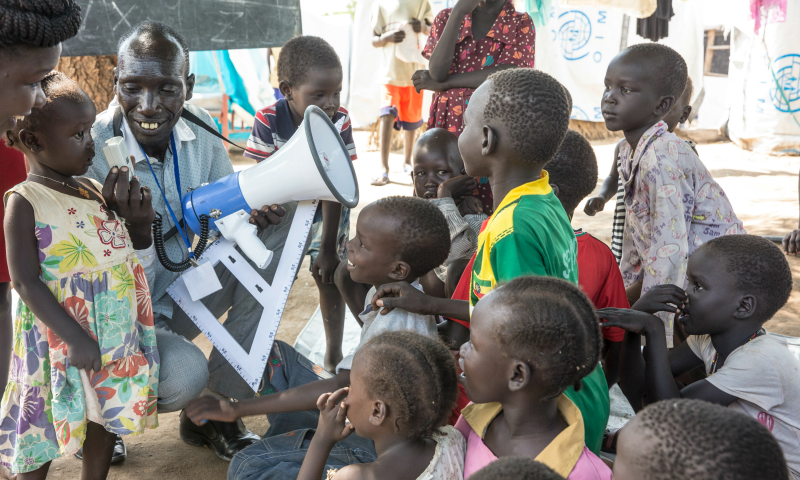
A record 130 million people around the world are in need of humanitarian assistance to survive. Grouped together, these people in need would comprise the tenth most populous nation on Earth.
To draw attention to humanitarian needs worldwide and the importance of international cooperation in meeting these needs, the United Nations will observe World Humanitarian Day, which takes place every year on 19 August. The Day also honours those who have lost their lives in humanitarian service and those who continue to provide assistance and relief to millions.
“World Humanitarian Day is an annual reminder of the need to act to alleviate the suffering,” said Secretary-General Ban Ki-moon in his message for the Day. “It is also an occasion to honour the humanitarian workers and volunteers toiling on the frontlines of crises. I pay tribute to these dedicated women and men who brave danger to help others at far greater risk.”
Every year, disasters cause immense suffering for millions of people. Those affected worse are usually the world's poorest, most marginalized and vulnerable individuals. For instance, extreme weather events tend to disproportionately impact older people. In 2005, 75% of those killed by Hurricane Katrina were over 60, even though they made up just 15% of the population in New Orleans. In 2011, 56% of those who died in the Great East Japan Earthquake and Tsunami were 65 and over, despite comprising just 23% of the population.
Evidence also shows the mortality rate of persons with disabilities during disasters to be two to four times higher than that of persons without disabilities. Disasters and conflict also impact on the built environment, creating additional barriers and limitations. Indigenous persons with disabilities are particularly vulnerable to natural disasters as they often live in areas of risk related to climate change and are also overrepresented among the poor, which increases their likelihood to be affected by these emergencies.
Under the theme of ‘One Humanity’, World Humanitarian Day will highlight how the world came together in Istanbul for the World Humanitarian Summit earlier this year, and made commitments to support people affected by crisis and ensure that aid workers can safely and more effectively deliver to those in need. This includes the Charter on Inclusion of Persons with Disabilities in Humanitarian Action, which urges government representatives as well as leaders of non-governmental organizations and funding bodies to ensure that their future humanitarian actions will be inclusive of people with disabilities. The 2030 Agenda for Sustainable Development aims to ensure that no one is left behind, and this emphasis on reaching the poorest and most vulnerable must also be critical in the recovery process.
Following on the ‘Impossible Choices’ campaign earlier this year, the WHD digital campaign ‘The World You’d Rather’ will launch on 19 August. Featuring a quiz based on the popular game ‘Would you rather’, the digital campaign will bring to light the very real scenarios faced by people in crisis. After being confronted with challenging choices, users will be able to share a personalized graphic on social media, tweet their world leader and learn about the Agenda for Humanity.
Learn more about World Humanitarian Day.
Sign on to the United Nations “World You’d Rather” campaign.
Source & Copyright: UN OCHA
 Welcome to the United Nations
Welcome to the United Nations